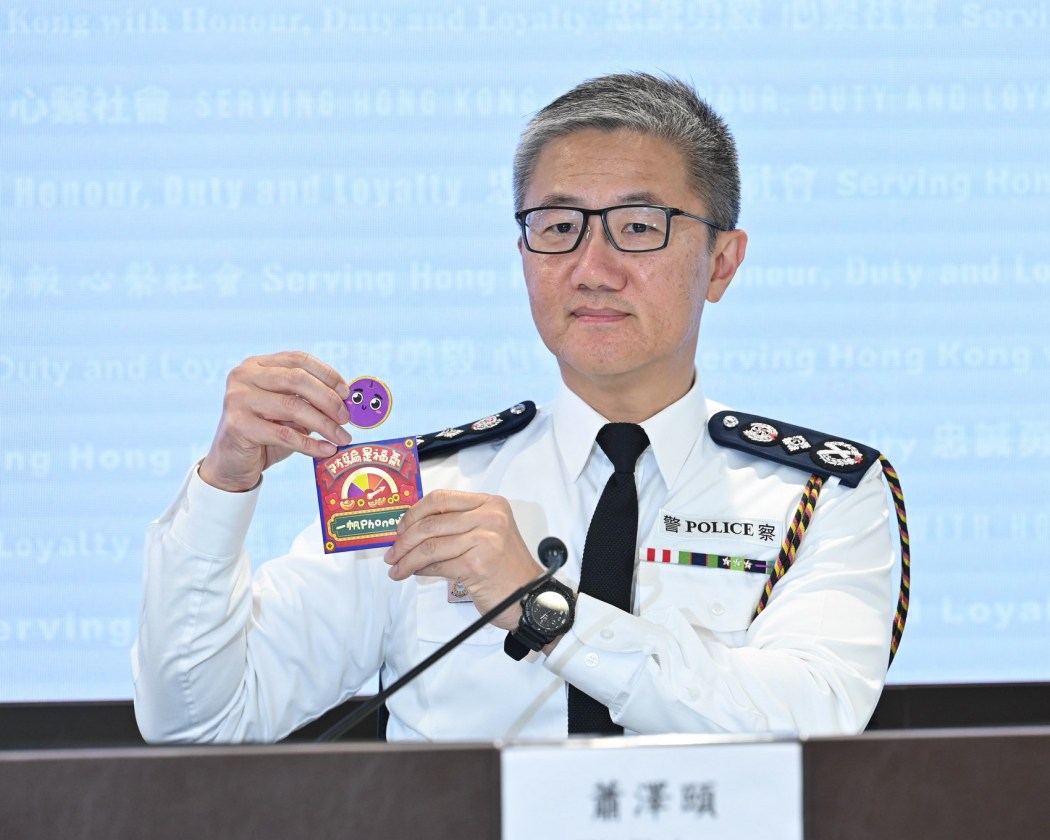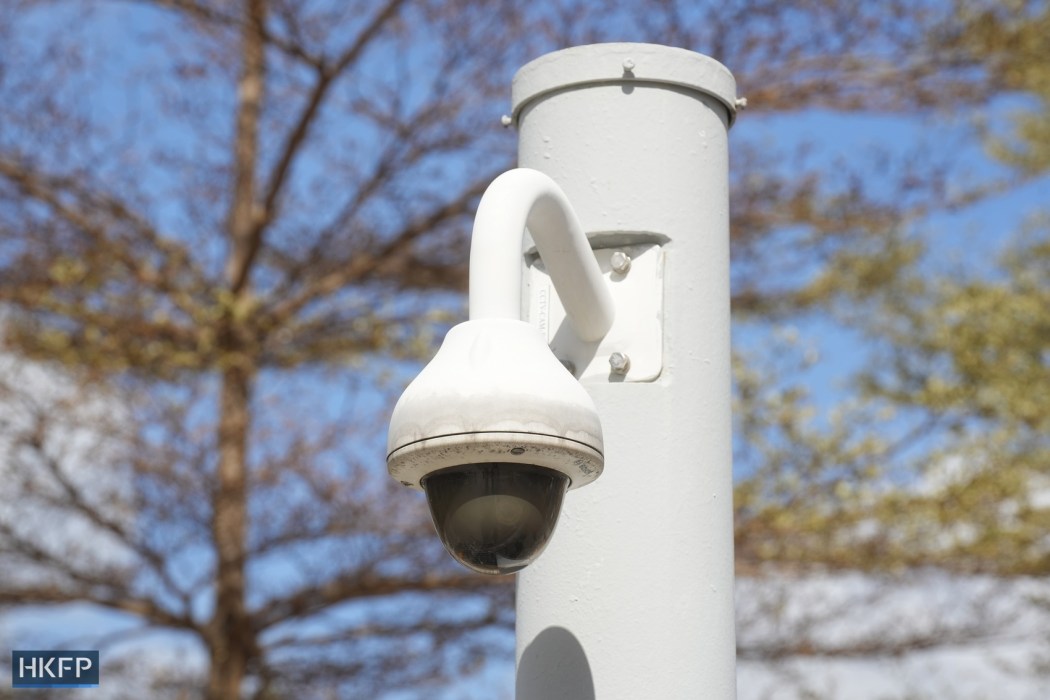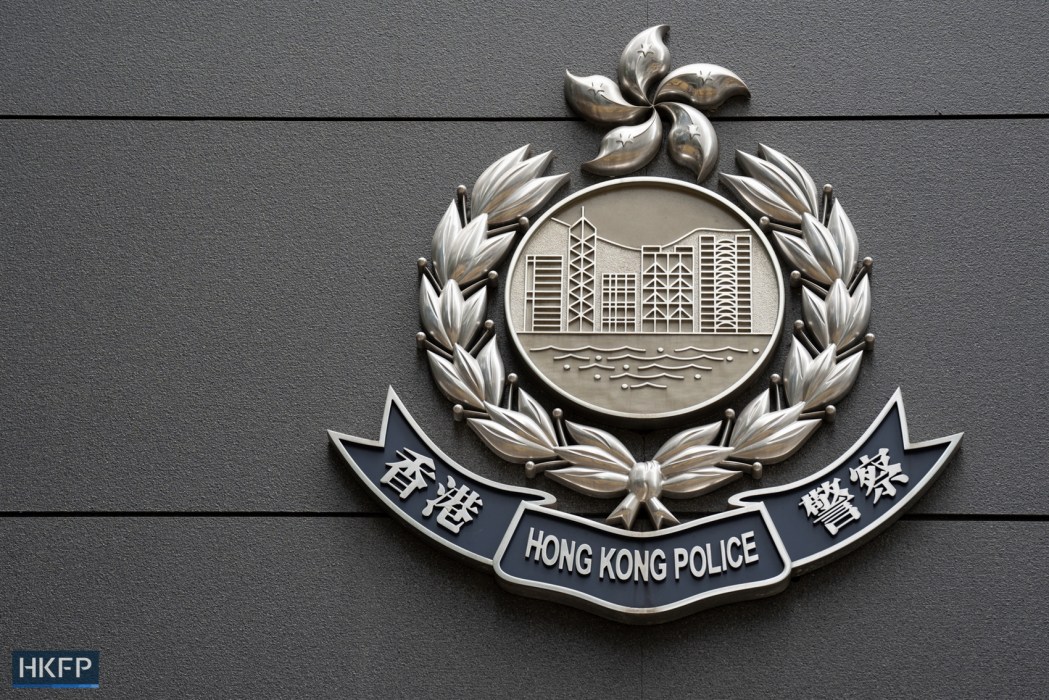The 2,000 new security cameras to be installed in Hong Kong by the end of 2024 for improving public safety may be equipped with face recognition functions, the city’s police chief has said.
Hong Kong will see 615 new CCTV cameras set up at “black spots” next month as part of police efforts to enhance surveillance for crime detection and prevention, Commissioner of Police Raymond Siu said in an interview with TVB last Sunday.

The Force would check the first batch of cameras installed to see if any fine-tuning was needed, before setting up the rest of the 2,000 devices in crowded areas and other crime hotspots, Siu said.
He added that many places around the world also had security cameras, including the UK and Singapore, where he said the number of CCTV cameras stood at 7.3 million and 90,000 respectively. Installing 2,000 CCTV cameras in Hong Kong was “really relatively not enough,” Siu said.
“We believe that there will be more than 2,000 [CCTV cameras] in the future,” Siu said in Cantonese.
It is not known how many surveillance cameras are already installed in public places in Hong Kong, where government departments including the police, Leisure and Cultural Services Department (LCSD) and the Food and Environmental Hygiene Department have CCTV cameras set up.
The Security Bureau told HKFP last month that the government did not maintain the number of CCTV cameras in the city.
Facial recognition
Asked whether the surveillance cameras would have facial recognition functions, Siu said he would not rule out such possibility. The Force has yet to decide on the retention period of the footage recorded and would make reference to other countries and regions, the police commissioner said.

Siu also rejected privacy concerns, saying the devices would only monitor public areas. The police would handle the cameras in accordance with the law and consult with the Office of the Privacy Commissioner for Personal Data to ensure people’s privacy would not be infringed, he said.
The new security cameras would be “independent,” the police chief added, as the Force had no plans to use existing security cameras managed by other government departments.
Asked if the security cameras would be used for national security purposes, Siu said the devices would help tackle all illegal matters. Although Hong Kong’s traditional crime figures dropped to a “particularly low level” last year, the installation of new CCTV cameras was still needed, he said.
“I think any law-abiding citizen would hope to see zero crime. They would not think that the police can relax because the [crime rate] has dropped,” he said.
Last week, the police announced that Hong Kong logged an almost 30 per cent increase in crime compared to the year before. The rise was led by a surge in fraud-related offences and violent crime, including robbery and rape.
‘Security matters’
In March 2020, then-lawmaker Charles Mok requested then-security chief John Lee to disclose details of the existing CCTV cameras installed by the Force and other government departments.

The legislator asked about the total number of devices, where they were installed, the retention period of video clips, and whether the devices had auto-tracking and facial detection functions.
The government did not maintain such statistics on the cameras, Lee said at the time, adding that information on the camera systems involved “security matters.” Disclosing such information might unveil the government’s security arrangements and the investigatory techniques of law enforcement agencies to criminals, the minister said.
Mok also asked whether the police had tried to identify individuals by requesting access to personal data in databases managed by other departments, and making comparisons with facial features recorded by CCTV cameras.
Lee did not give a direct response and said the police would comply with the law should there be a need to obtain data from other departments during a probe.
“As for the other information requested in the question, it is not appropriate for disclosure lest it compromises the Police’s technologies and capabilities in the prevention and detection of crime,” he said.
Support HKFP | Policies & Ethics | Error/typo? | Contact Us | Newsletter | Transparency & Annual Report | Apps
Help safeguard press freedom & keep HKFP free for all readers by supporting our team

LATEST FROM HKFP
HKFP has an impartial stance, transparent funding, and balanced coverage guided by an Ethics Code and Corrections Policy.
Support press freedom & help us surpass 1,000 monthly Patrons: 100% independent, governed by an ethics code & not-for-profit.










